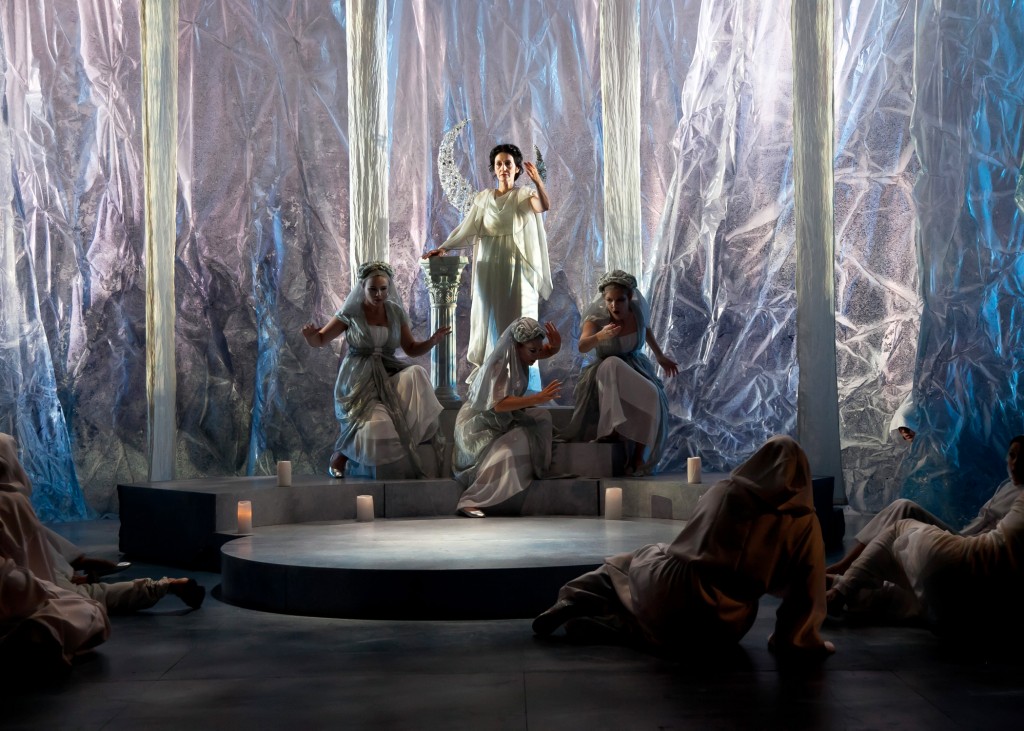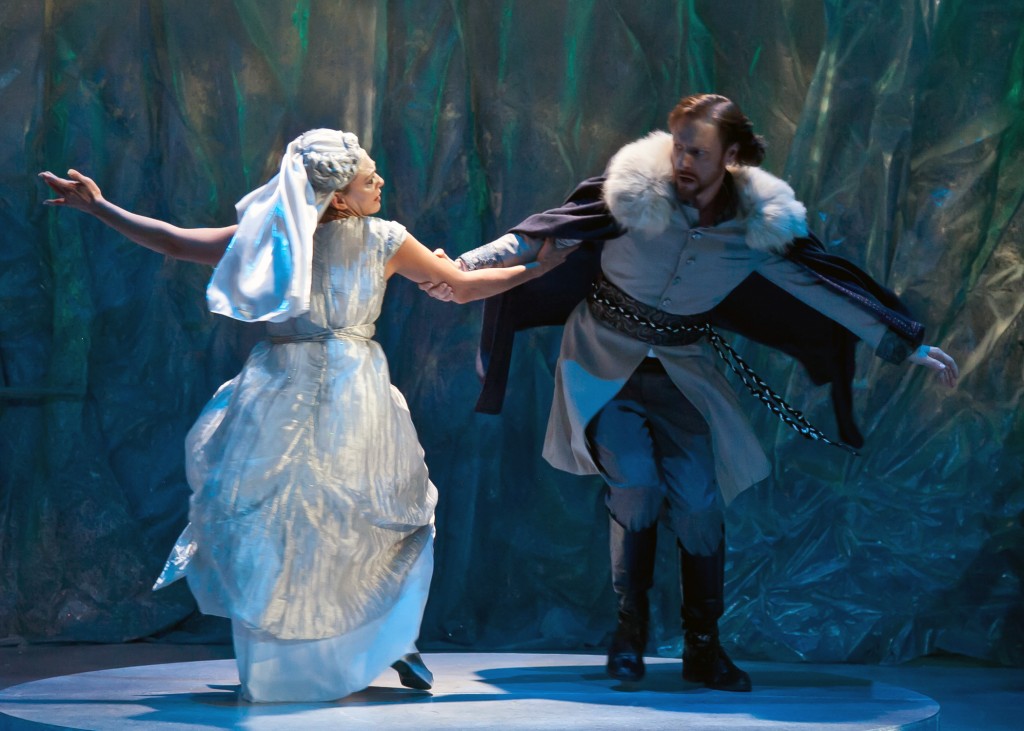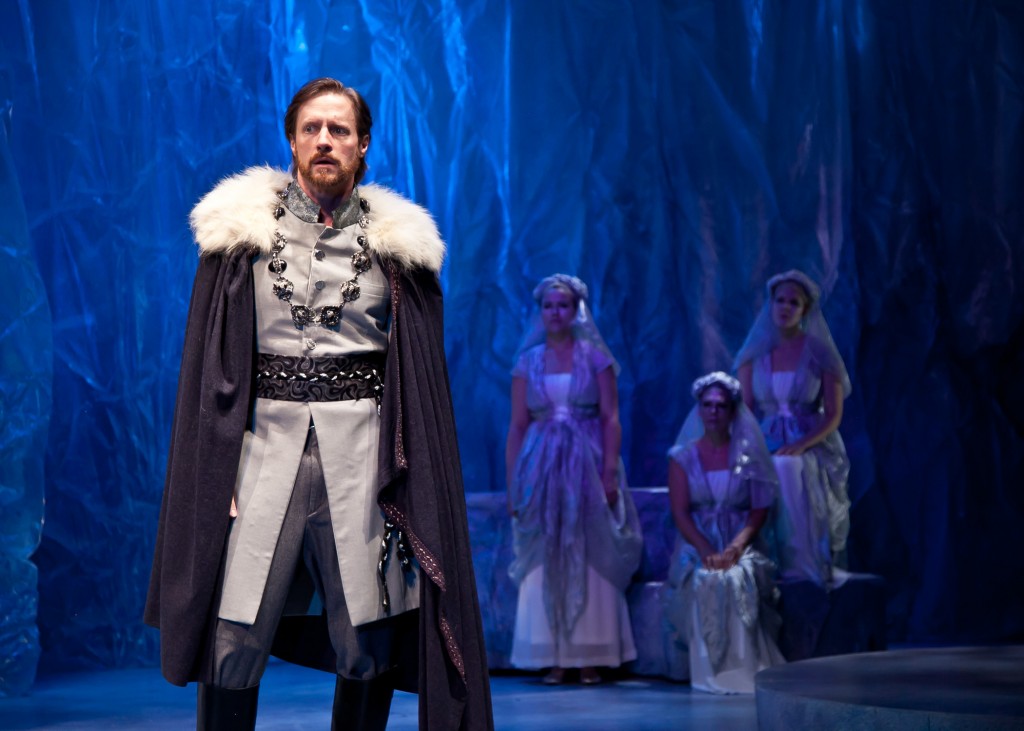Pericles: The Truth Is Out There

Did he or didn’t he? Scholars have debated for hundreds of years whether William Shakespeare actually wrote “Pericles” on his own or with the help of another. You can judge for yourself this month thanks to The Shakespeare Theatre of New Jersey who is presenting this rarely performed work now through December 29 at the F.M. Kirby Shakespeare Theatre (36 Madison Avenue in Madison, NJ). Despite being one of the most popular plays by Shakespeare centuries ago, the play’s popularity has dimmed over the years – perhaps due to the debate over whether or not it was entirely written by the Bard of Avon. The conspiracy begins with the style of the play’s early scenes as compared to its later ones. While the last half of the play bears a strong resemblance to the words and character development of Shakespeare, the early scenes are very different. In fact, the first half is generally rumored to be that of George Wilkins, a playwright whose own work “The Painful Adventures of Pericles” contains many stylistic similarities.
The conspiracy was bolstered by the fact that “Pericles” was one of only two plays (the other being “The Two Noble Kinsman”) currently attributed to Shakespeare to be left out of the First Folio printing of his complete works in 1623, which was published seven years after his death. A debate has long raged over whether the omission was due to the publisher’s inability to acquire a copy of the text or whether the existence of a co-author was the reason.
“Pericles” has nevertheless stood the test of time because it is a truly grand tale – one that is an inspiring choice to close out the 51st season of The Shakespeare Theatre of New Jersey. Inspired by ancient Greek mythology, the play evokes the epic grandeur of Homer’s “Odyssey” as it takes you on a voyage across the ancient Mediterranean filled with kings, goddesses, pirates, pimps, and magicians.
Pericles, Prince of Tyre, discovers a terrible secret in the court of Antioch, and flees, fearing for his life. His long and perilous odyssey includes adventure, betrayal, joy, sorrow, and ultimately, reunion, redemption, and renewal.
The play, directed by resident director Brian B. Crowe, stars Jon Barker as Pericles, Jacqueline Antaramian (goddess Diana), John Hickok (Pericle’s noble deputy Helicanus), Corey Tazmania (poet Gower), Clark Scott Carmichael (governor of Tarsus), Maria Tholl (Thasia, princess of Pentapolis), Kristie Dale Sanders (Lychorida, Thasia’s faithful nurse maid), and Lindsey Kyler (Marina, Pericles’ daughter).
You’ll be entranced by the spectacular stages and beautiful costumes. This is a play that demands a set that lures the audience into the ancient Greek world and one that gets it with this production. The Shakespeare Theatre of New Jersey deserves credit for keeping plays like this alive. It offers modern day theatergoers the opportunity to see what would have been the Hollywood blockbuster of the day.
“What has made the play endure is the heart Shakespeare creates at the center of the story,” explained Crowe. “What could, in less skilled hands, come across as melodrama or mere spectacle, Shakespeare spins into a glittering tapestry of hope, heartbreak, and ultimate triumph.”
“Pericles” was Shakespeare’s first Romance – a genre that involves far more than just a relationship. Classic Romance plays feature a protagonist who generally either makes a terrible mistake or suffers an incredible misfortune. They revolve around the protagonist being tested through an amazing journey and often are based on popular Greek mythology. “Pericles” follows this style, often described as containing equal parts “One Thousand and One Nights,” Homer’s “Odyssey,” and Shakespeare’s own works “The Tempest,” “Cymbeline,” and “The Winter’s Tale.”
Shakespeare developed his play based on a story with roots in the Greek romantic legend of Apollonius of Tyre, which goes all the way back to 3rd century B.C. The tale was kept alive in various poems and novels through the centuries, including the epic Middle-English poem titled “Confessio Amantis” by John Gower (1393) and Laurence Twine’s novel “The Pattern of Painful Adventures” (1576). These two works are often thought to have served as the inspiration for Shakespeare’s “Pericles.”
We may never know for sure if “Pericles” was written solely by Shakespeare himself, but there is little doubt that his genius can be found in the play. In the end, that’s all that matters. Whenever you can lose yourself in the words of one of the greatest writers of all time, it’s a pretty good day.
NOTE: This production is presented in two acts with one intermission. Run time, including intermission, is 2 hours and 20 minutes.
A special symposium performance will take place after the performance on Saturday, December 21st at 2pm. Attendees are encouraged to participate in a lively post-performance discussion about the play with the actors, directors, and artistic staff.
For more information visit www.ShakespeareNJ.org.



